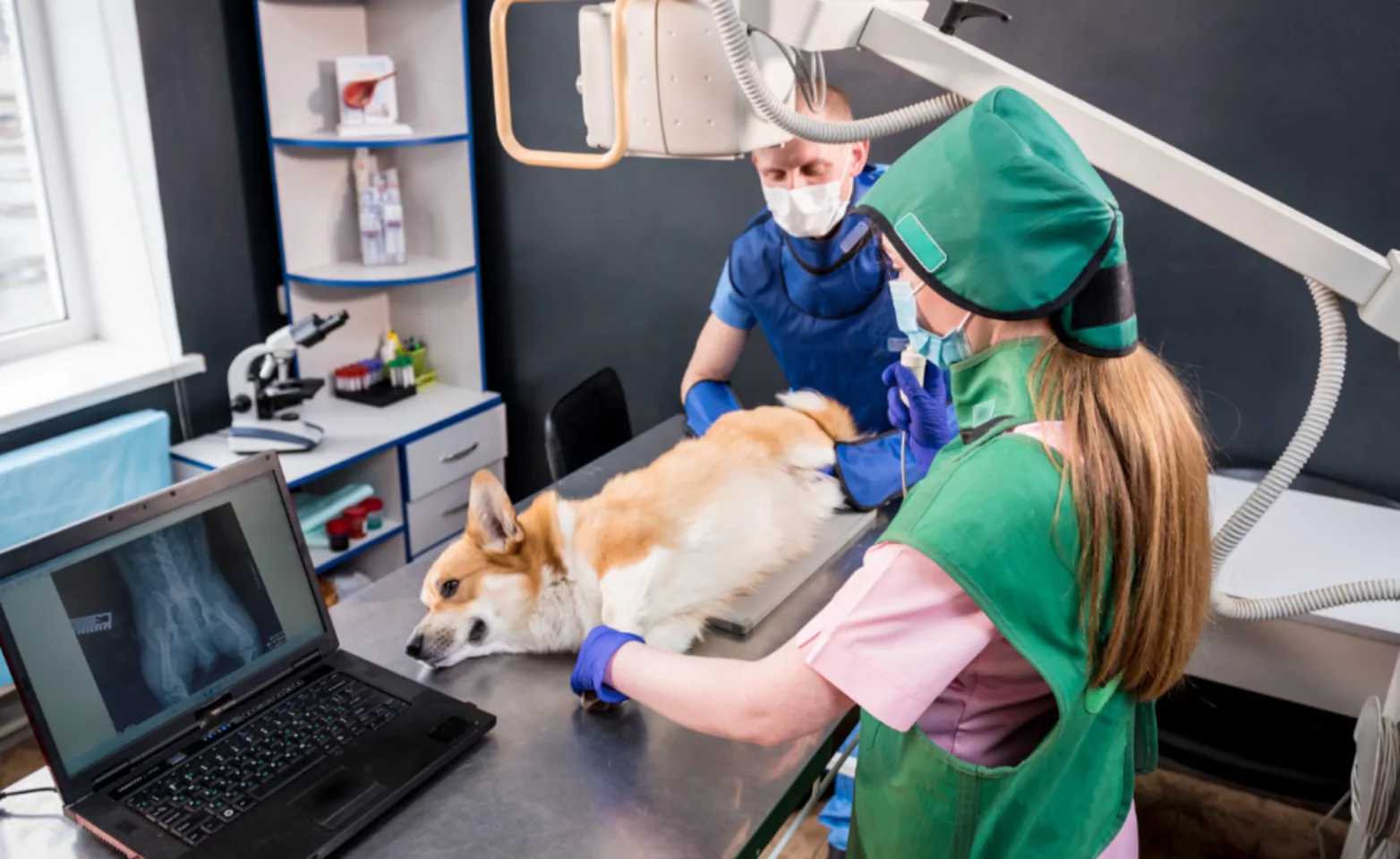ARISE Veterinary Center - Queen Creek

Diagnostic imaging (radiographs, ultrasound, CT, MRI, fluoroscopy) is a critically important core service at ARISE. Advanced imaging allows us to obtain information about the anatomy of inner organs of the chest and abdomen, as well as complex regions such as the head (brain), neck, and spine with minimal risk to the patient. These modalities complement each other and are considered non-invasive diagnostic techniques that provide information that cannot be obtained on physical examination or bloodwork. Having a radiologist onsite helps us explore options for imaging so we can select the right test for each pet, perform imaging-assisted sampling, and monitor chronic conditions over time.
While every veterinarian receives training for interpretation of diagnostic imaging such as radiographs (x-rays), and many specialists across the country are accustomed to interpreting their own specialized imaging studies (such as CT or MRI), our on-site radiologist plays a key role in ensuring your pet receives the most specialized, personalized care.
Tests Offered:
Our radiology team is capable of running a variety of different tests and procedures that may shed light on the health problem your pet is dealing with. We aim to stay on the forefront of a constantly advancing field of veterinary medicine. Our facility is equipped with top-of-the-line technologies to best serve you and your pet.
We offer a number of advanced diagnostic and therapeutic options, including but not limited to:
Radiographs (x-rays): This test can be used to evaluate for musculoskeletal abnormalities (fractures, joint swelling), lung abnormalities (pneumonia, congestive heart failure, cancer) and evaluate for abdominal organ enlargement and gastrointestinal abnormalities.
Ultrasound: Ultrasound can be used to obtain detailed images of the internal organs such as liver, spleen and kidneys. These organs can be examined with ultrasound in far greater detail than with traditional radiographs. Additionally, ultrasound can be used to facilitate non-invasive sampling from organs when disease is present so that a treatment plan can be established.
CT Scan: CT scan provides a comprehensive three-dimensional image of organ systems. It can be used to investigate multiple body systems such as the nose, chest, and abdomen. It can also diagnose diseases associated with the blood vessels such as portosystemic shunts.
Fluoroscopy: Fluoroscopy is essentially a video x-ray and can be used to investigate problems with swallowing and regurgitation as well as to highlight blood vessels.
MRIs: MRIs show detailed views of the brain and spine and are most commonly used to evaluate for intervertebral disc disease, congenital abnormalities of the spine and brain, and inflammation, infection, or cancer in the spine or brain.
Veterinary radiologists are not commonly involved in the treatment of pets, but they are vital to accurately and rapidly diagnosing health problems. The following list, while not exhaustive, details issues that our radiology team can aid in identifying.
Broken bones: X-rays and other tests can identify any fractures or breaks affecting an animal.
Cancer: Diagnostic imaging can determine the location and severity of tumors and masses.
Heart disease: The heart’s health can be monitored by tests that show its size and any irregularities present. Respiratory illness: Some procedures can show any issues, fluids, or abnormalities in the lungs and airways of an animal.
Pregnancy: Ultrasounds are useful in tracking the health of a pregnant animal and its babies.
The veterinary radiology team at ARISE can aid in diagnosing any health problem that your pet may be currently facing. If you have any questions about the imaging tests we provide, our office is happy to assist you.
